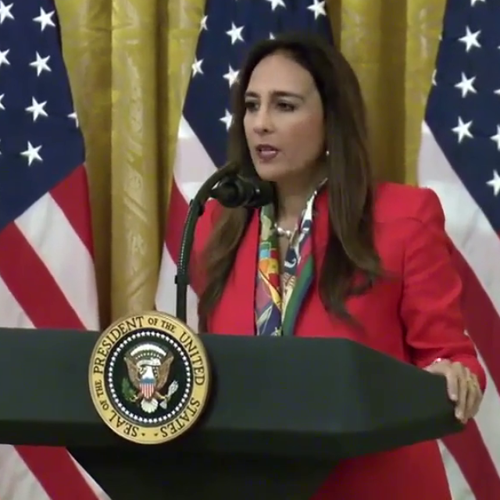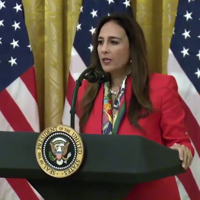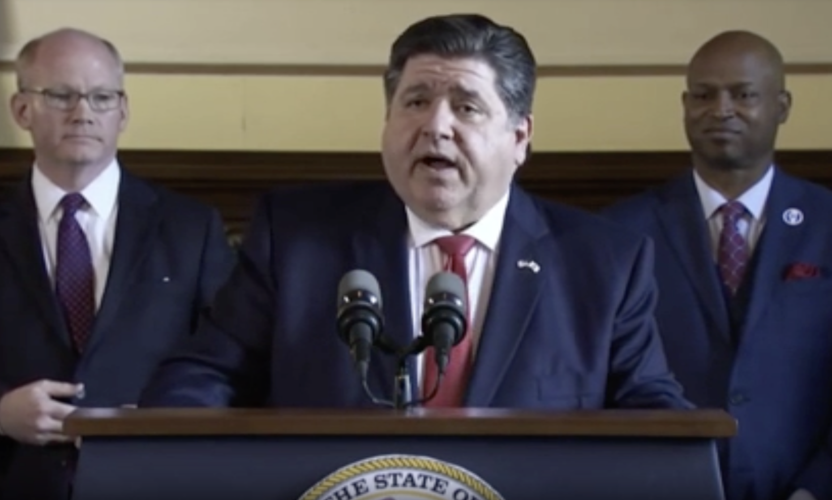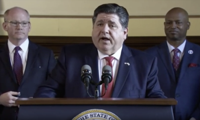
Harmeet K. Dhillon
The federal government has jumped into the court fight over the fate of Illinois' ban on so-called "assault weapons," this time on the side of those seeking court rulings declaring Illinois Democrats violated the Second Amendment in enacting the gun ban.
On June 13, the Justice Department under President Donald Trump filed a brief before the U.S. Seventh Circuit Court of Appeals in support of a group of firearm owners and sellers, asking the appellate court to uphold the decision of a Southern Illinois federal judge who declared Illinois' law to be unconstitutional.
"Three years ago, the Supreme Court issued a landmark decision meant to break a habit developed by some States of treating the Second Amendment as 'a second-class right, subject to an entirely different body of rules than the other' constitutional right," the DOJ said in its brief, citing the Supreme Court's ruling in New York State Rifle & Pistol Association v Bruen.
"Regrettably, not every State got the message. Just a few months after Bruen, Illinois outlawed some of the most commonly used rifles and magazines in America via a so-called 'assault weapons' ban. In doing so, Illinois violated the Supreme Court’s clear directive that States cannot prohibit arms that are 'in common use' by law-abiding citizens for lawful purposes," the Justice Department wrote.
The brief marks a significant entry on the side of those challenging Illinois' "assault weapons" ban law.
The legal challenges to the so-called Protect Illinois Communities Act (PICA) began almost immediately after Gov. JB Pritzker signed the legislation into law in 2023. The law took effect on Jan. 1, 2024.
The PICA law includes several provisions banning a long list of semiautomatic firearms and so-called "large capacity magazines," which the state defined as ammunition magazines which can hold more than 10 rounds.
Pritzker and other supporters of law say it is needed to prevent future mass shootings. Democrats rammed the law through the General Assembly in response to the massacre at the 2022 Fourth of July parade in suburban Highland Park. The attack was carried out by a lone gunman wielding a semiautomatic rifle manufactured by Smith & Wesson, which the state has included on a list of so-called "assault weapons" Illinois Democrats believe should be banned in the state.
Second Amendment rights supporters, however, say the law is a blatant violation of the Second Amendment, particularly as interpreted by the U.S. Supreme Court in Bruen and the earlier landmark Second Amendment decision, known as District of Columbia v Heller.
In those decisions, the Supreme Court created tests for states and courts to use when evaluating if such restrictions are constitutional. Those tests require courts and lawmakers to evaluate if the weapons being banned are both dangerous and unusual, and if the restrictions are in keeping with U.S. history and tradition dating back to the ratification of the Second Amendment in 1791 and the Fourteenth Amendment in 1868.
Despite those Supreme Court rulings, attempts to block the law have failed to this point.
U.S. District Judge Stephen McGlynn in East St. Louis initially blocked the law. But that order was stayed by a U.S. Seventh Circuit appeals panel.
Federal judges in Chicago rejected similar injunction requests from other challengers.
Then, a majority of the Seventh Circuit panel sided with the state on the injunction question, saying they didn't believe the challengers would ultimately win.
In a 2-1 ruling, Seventh Circuit judges Frank Easterbrook and Diane Wood notably said they do not believe the Second Amendment protects the banned weapons at all, because those weapons are too dangerous and too closely resemble weapons used by militaries. They notably compared the semiautomatic AR-15 rifle to its fully automatic "military-grade" cousin, the M-16. They reasoned that since federal law prohibits ownership of fully automatic rifles, then states are free to ban any semiautomatic firearms they deem too similar.

Illinois Gov. JB Pritzker, flanked by Illinois Senate President Don Harmon, left, and House Speaker Emanuel "Chris" Welch, right
Semiautomatic weapons fire one round for each time the trigger is pulled. Fully automatic "machine gun" weapons can spray numerous bullets each time the trigger is squeezed.
The U.S. Supreme Court has also, to this point, declined to weigh in on the Illinois case and similar decisions from other appeals courts handling similar challenges to similar laws in other states.
However, recently, U.S. Supreme Court Justice Brett Kavanaugh fired what many took to be a legal warning shot at gun-banning states and the courts upholding their laws, indicating the Supreme Court's conservative majority may be preparing to strike down "assault weapon" bans within the next year or two.
That comes after U.S. Supreme Court Justice Clarence Thomas, author of the Bruen decision, blasted the Seventh Circuit's ruling, calling their reasoning "nonsensical," "contrived" and "highly suspect."
Nonetheless, Illinois' law remains in effect, threatening Illinois gun owners with fines or jail time for violations.
And the legal challenge to Illinois' law has continued.
Back in Southern Illinois, McGlynn issued a ruling for the challengers on the merits, saying he found the law to be "an unconstitutional affront." He included a voluminous record of evidence and inquiry, which he said demonstrates precisely how the Illinois gun ban law violates the Second Amendment under Bevis and Heller.
Illinois Attorney General Kwame Raoul appealed the decision to the Seventh Circuit, which again stayed McGlynn's ruling until the appeals court can complete proceedings.
The Seventh Circuit has not yet scheduled oral arguments in the case. However, the court has begun accepting briefs from groups and lawyers seeking to sway the court on both sides.
The Justice Department then jumped in with both feet, filing a brief almost fully in support of the challengers' position.
In the brief, the DOJ particularly takes aim at the assertion by Raoul and in the Seventh Circuit's earlier decision that the Second Amendment doesn't protect "militaristic" weaponry, but only weapons that lawmakers and judges determine to be useful for self-defense, hunting or shooting sports.
In the filing, the Justice Department agreed with challengers that the Second Amendment also protects weapons useful for "collective self-defense" - for instance, against uprisings or invasion.
Second Amendment advocates have also asserted that right of collective defense should also apply to defense by the citizenry against government tyranny.
They noted that when the Second Amendment was ratified and for more than a century following, American governments and courts agreed that the law protected private ownership and use of rifles and other weapons routinely used by infantry on the battlefield.
The Justice Department said that is the correct understanding of the Second Amendment's reference to a "well-regulated militia." Since the militia was made up of ordinary citizens, therefore, the Justice Department said, it was understood that ordinary citizens would need weaponry that could be useful for militia service.
"This Second Amendment’s militia-related text, as interpreted by the Supreme Court, thus suggests that the government may not prohibit weapons simply because it considers them 'militaristic,'" the Justice Department wrote. "The contrary claim that 'militaristic' weapons fall outside its scope wrongly requires reading the prefatory clause entirely out of the Second Amendment."
The prior holding by the Seventh Circuit "that the Second Amendment does not protect 'militaristic' weapons is at odds with our Nation’s history of citizens possessing - and indeed, sometimes being required to possess - weapons that would be useful in various collective self-defense contexts," the DOJ wrote.
The Justice Department urged the Seventh Circuit to avoid a potential rough ride at the Supreme Court and strike down the Illinois law as unconstitutional.
The brief was submitted by DOJ attorney Jason Manion and submitted in the name of Assistant Attorney General Harmeet K. Dhillon, of the Justice Department's Civil Rights Division.
In a post to social media platform X announcing the filing, Dhillon said: “The Second Amendment is not a second-class right. See you in court, Illinois.”




